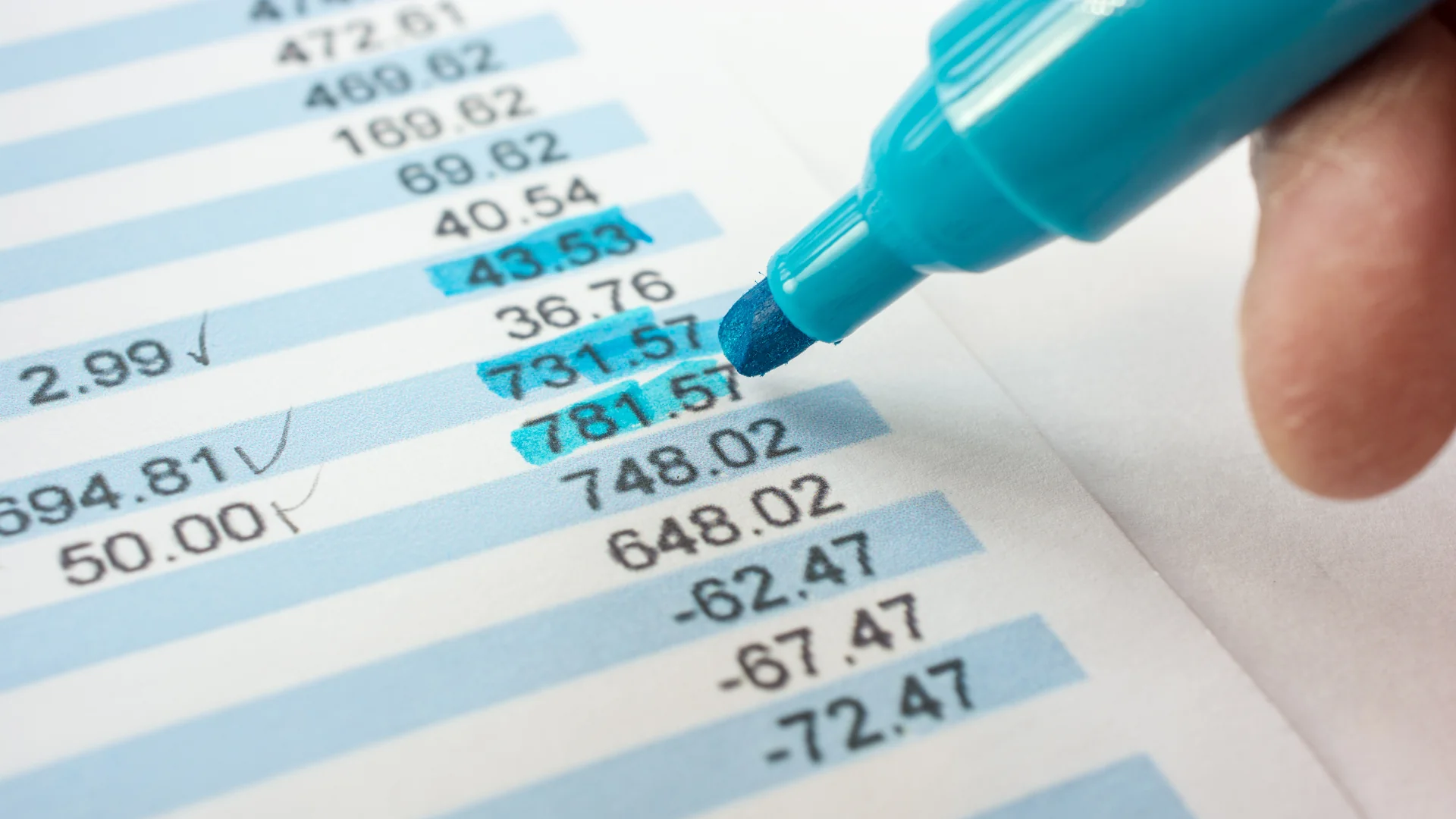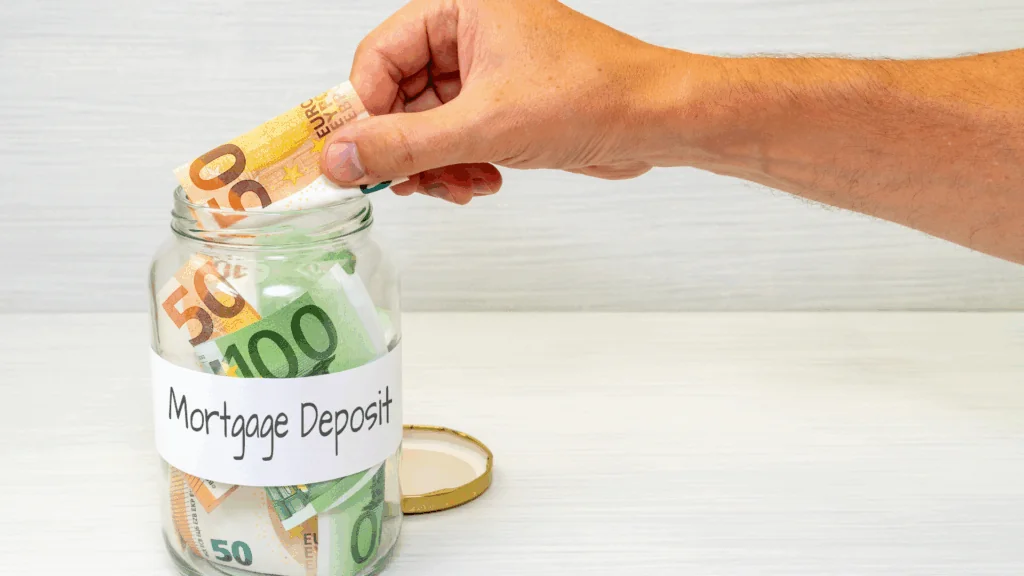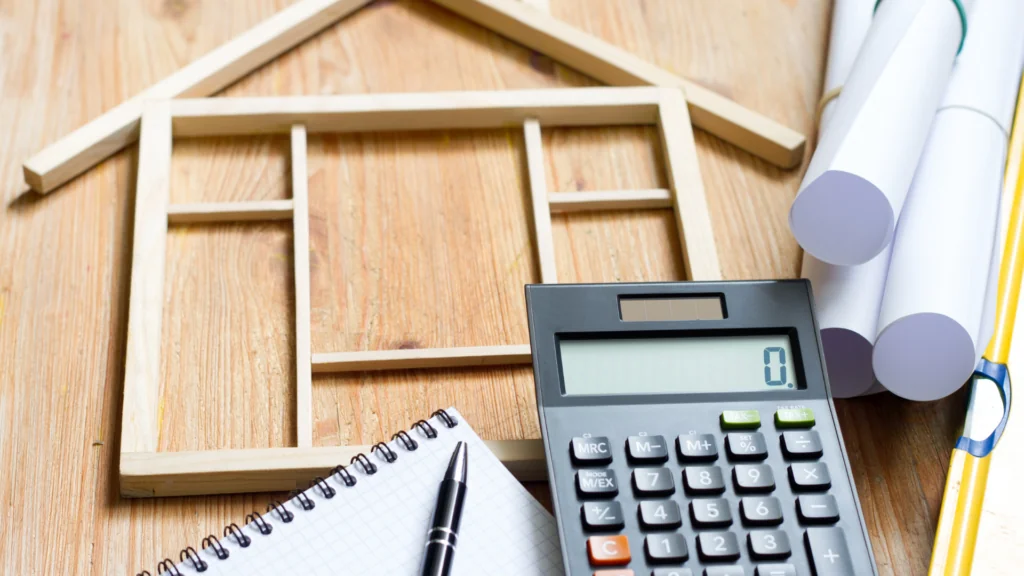- Why Do You Need to Show Proof of Deposit?
- Where Can Your Deposit Money Come From?
- Which Deposit Sources Could Hurt Your Mortgage Application?
- When is a Proof of Deposit Required?
- Who Needs to See Your Proof of Deposit?
- How Far Back Do You Need to Provide Proof of Funds?
- Can You Use Equity as a Deposit for a Mortgage?
- What Documentation Do You Need for Proof of Deposit?
- Tips for a Smooth Proof of Deposit Process
- Key Takeaways
- The Bottom Line
What Is Proof Of Deposit For A Mortgage?

When you’re buying a house, one of the first things you need is a deposit. This is a chunk of money you pay upfront. 💷
Most mortgage lenders ask for at least 5% to 20% of the property’s value. However, it’s not enough to simply have the deposit amount ready.
You must also show where this money came from. This is called proof of deposit, and here’s how you can handle it without any stress.😌
Let’s get started.
Why Do You Need to Show Proof of Deposit?
The main reason you need to show proof of deposit is so lenders can check that your deposit money is from a legal source.
This is to follow anti-money laundering laws – rules to stop money from crimes being used to buy houses.
When you show where your deposit came from, lenders make sure they’re not helping any illegal actions.
This keeps you and the bank safe. It makes sure the housing market stays honest and straightforward.
Plus, knowing where the money comes from helps keep everyone’s financial dealings on board. This is why proving your deposit source is a big part of getting a mortgage.
Where Can Your Deposit Money Come From?
The most common source is your personal savings account. Your bank statements proving the money built up over time are normally accepted as proof.
But deposit money can also legitimately come from other places like:
- Sale of a property. If you’re using proceeds from the sale of another property to fund your deposit, you’ll need to provide documentation such as the sale agreement and bank statements showing the transfer of funds.
- Equity release. If you’re remortgaging an existing property to access equity for a deposit on a new home, your lender will likely already have the necessary information and won’t require additional proof of deposit.
- Inheritance. If you’ve received an inheritance that you’re using for your deposit, you’ll need to provide documentation from the estate, such as a grant of probate or letters of administration, as well as bank statements showing the transfer of funds.
- Gift. Many buyers, especially first-time buyers, receive financial gifts from family members to help with their deposit. In this case, you’ll need to provide a gift letter signed by the donor stating that the money is a genuine gift with no expectation of repayment or ownership interest in the property.
Which Deposit Sources Could Hurt Your Mortgage Application?
While there are numerous acceptable sources of funds for a mortgage deposit, some sources are likely to raise red flags with lenders. These include:
Cash
Most lenders will not accept large cash deposits as proof of deposit due to concerns about money laundering and the inability to trace the source of the funds.
If you have cash savings, it’s advisable to deposit them into a bank account well before applying for a mortgage.
You will need to show bank statements that show the funds have been in your account for some time, typically 6 months, to establish a traceable source.
Loans
If you’re using a personal loan or borrowing from another source to fund your deposit, this is generally not acceptable to lenders.
They want to ensure that you have the financial means to afford both the deposit and the monthly mortgage payments without relying on additional debt.
While not strictly prohibited, some lenders may be hesitant to accept gambling winnings as proof of deposit, especially if there are concerns about gambling addiction or the sustainability of the funds.
To reassure them, show clear proof like casino receipts and bank statements. Having a steady income and savings in other accounts will also help.
When is a Proof of Deposit Required?
Get your proof of deposit ready as soon as you can. This way, you won’t face any delays when you find your dream home and start the buying process.
You’ll need to show it when you apply for the mortgage and might need it again during the buying process.
Here’s when a POD is typically required at multiple stages:
- Mortgage application. Your lender will require proof of deposit as part of the mortgage application process to verify that you have the necessary funds for the down payment.
- Making an offer. When you submit an offer on a property, the estate agent or seller may ask for proof of deposit to ensure that you have the financial means to proceed with the purchase.
- Conveyancing. Your conveyancing solicitor will need to see proof of deposit to facilitate the transfer of funds during the property transaction.
Who Needs to See Your Proof of Deposit?
A few different people will want to see your proof:
- Your mortgage lender needs it to approve your loan.
- The estate agent might ask for it when you put in your offer.
- Your conveyancing solicitor needs it to handle the money when you’re ready to buy.
- The seller’s solicitor also checks it to make sure everything is good on their end.
How Far Back Do You Need to Provide Proof of Funds?
Lenders typically ask for bank statements covering the past 3-6 months to check your deposit source. This verifies how you got the money and how much you have saved.
If your deposit comes from selling a property or inheriting money, you might need extra proof showing the source even if you received it years ago.
Can You Use Equity as a Deposit for a Mortgage?
Yes, it is possible to use equity from an existing property as a source of funds for a deposit on a new mortgage.
This involves remortgaging your current home to access the equity, which you can then use as a down payment on a new purchase.
When using equity as a deposit, lenders will want proof:
- a mortgage statement or valuation to show your equity amount
- proof of sufficient income to cover the mortgage payments on both properties.
What Documentation Do You Need for Proof of Deposit?
The specific documentation required for proof of deposit will depend on the source of your funds, but may include:
- Bank statements. For personal savings or funds from property sales, inheritances, or gifts, you’ll need to provide at least 6 months’ worth of bank statements showing the accumulation or transfer of funds.
- Sale documents. If you’re using proceeds from a property sale, you’ll need to provide the sale agreement, completion statement, and any other relevant documentation.
- Gift letter. For financial gifts, you’ll need a gift letter signed by the donor stating that the money is a genuine gift with no expectation of repayment or ownership interest in the property.
- Inheritance documents. If your deposit is funded with inheritance, you’ll need to provide documentation such as a grant of probate or letters of administration, as well as bank statements showing the transfer of funds.
- Equity release documents. If you’re using equity from an existing property, you’ll need to provide mortgage statements or valuations to confirm the amount of equity available.
Tips for a Smooth Proof of Deposit Process
Here are practical ways to keep your mortgage application process straightforward:
- Keep records of all your bank transactions related to your deposit. This makes it easier to show where each penny came from.
- Talk to your solicitor if you’re not sure how to prove where your deposit came from, especially if it’s from less common sources like a large gift or inheritance.
- Ensure all documents are current and error-free. Regularly review and update your records to keep them accurate and reflective of your financial situation, avoiding any mistakes or outdated information.
Key Takeaways
- Proof of deposit shows where your money comes from and ensures it’s legal and traceable. This helps stop money from illegal activities being used to buy homes.
- Your deposit can come from savings, selling a property, inheritance, equity from your home, or a gift from family. You’ll need documents like bank statements or a gift letter to prove it.
- Lenders often don’t like large cash deposits, personal loans, or gambling winnings unless you can show exactly where the money came from.
- You’ll need to show proof of deposit when applying for a mortgage, making an offer, or during the buying process, so it’s best to get your paperwork ready early.
- Usually, lenders ask for 3-6 months of bank statements, but if your deposit is from a sale, inheritance, or equity, you might need extra proof like sale agreements or legal documents.
- If you’re using equity from your home as a deposit, you’ll need to show how much equity you have and that you can afford both mortgages.
The Bottom Line
Showing proof of your deposit is important for your mortgage application. This helps lenders ensure that your deposit funds come from legitimate sources and comply with anti-money laundering rules.🌟
Knowing what counts as a deposit, the documents you need and when to show proof will make buying a home smoother and boost your chances of getting a mortgage.
But, even with all your documents in order, the mortgage process can be complex and overwhelming. 😫
Here’s why working with a good mortgage broker can be a big help. A broker can guide you through the process, find the best deals for you, and make sure your application ticks all the boxes for approval.
Need a broker? Reach out to us. We’ll put you in touch with a qualified mortgage broker who can help you save time, stress, and potentially money in the home-buying process.
Get Matched With Your Dream Mortgage Advisor...

Frequently asked questions
What is an exchange deposit?
An exchange deposit is the money you pay when you and the seller agree to exchange contracts for a property. It’s a sign that you’re committed to the purchase.
Usually, this is about 10% of the property’s total price. Once you pay this deposit, the deal between you and the seller becomes legally binding.
Can I get pre-approved without a proof of deposit?
Proof of deposit is usually needed for pre-approval. Lenders want to see you have the money for a home.
Some might give a loose agreement without proof upfront, but that’s not a guaranteed mortgage. For a proper mortgage offer, you’ll always need proof of deposit.
How to explain a cash deposit for a mortgage in the UK?
Lenders need to know your cash is legit, not from anything dodgy. Here’s how to explain it:
- First, move the cash to your bank account before applying for a mortgage.
- Show a clear and full history of how you obtained the cash. This might include pay slips if it came from your earnings, a written statement if it was a gift, or documentation of a sale if the cash came from selling personal property.
- Keep the money in your account for at least 6 months and provide bank statements showing a stable source.
- If it’s a large amount, the lender might ask for extra proof like a gift letter from family or receipts from selling things.




